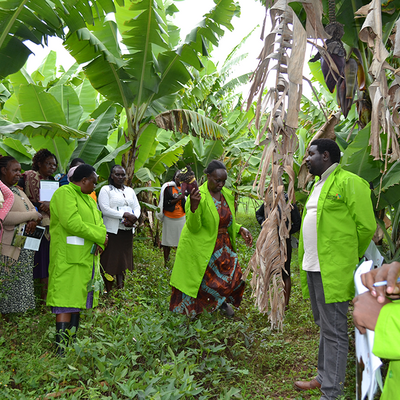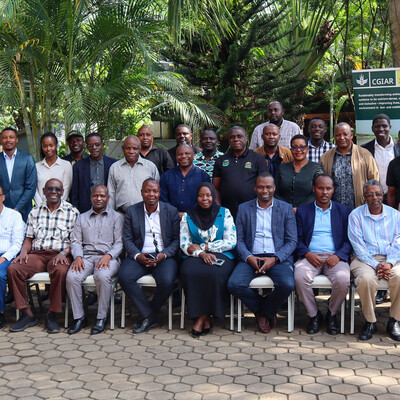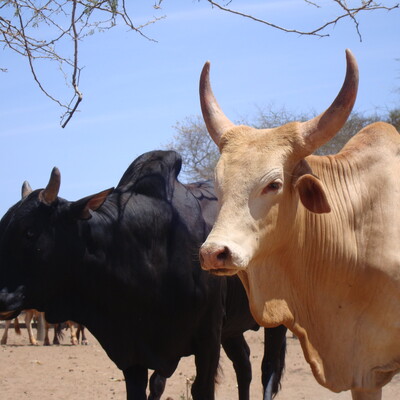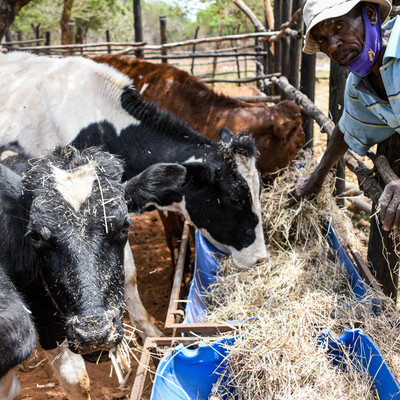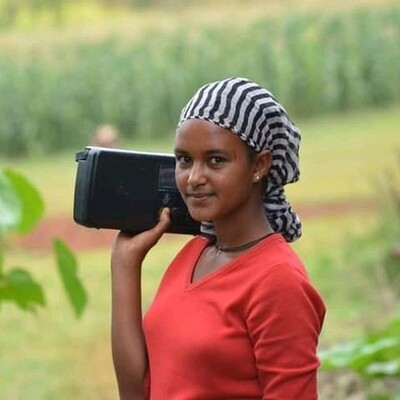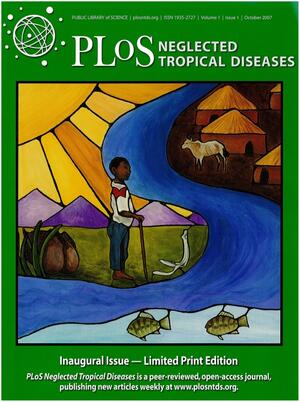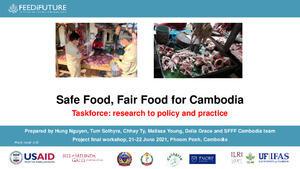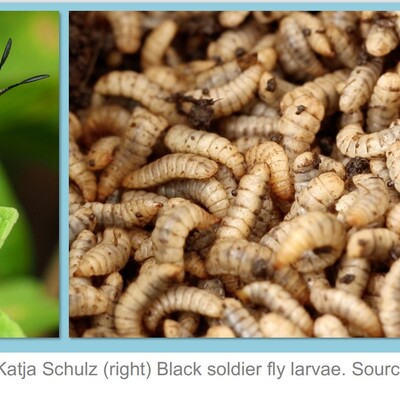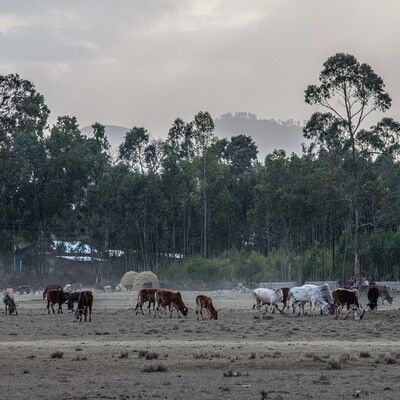
ILRI launches RESTORE to rebuild livestock services in conflict and drought-affected regions of Ethiopia
In a significant step towards rebuilding Ethiopia's vital livestock sector, the International Livestock Research Institute (ILRI), in collaboration with the Ethiopian Veterinary Association (EVA) and Ethiopian regional and national partners, launched the 'Restoration of Livestock Services in Conflict and Drought-Affected Areas of Ethiopia’ (RESTORE) project on 8 November 2024.
Funded by the European Union (EU), the ambitious four-year initiative, running until 2028, will address the pressing challenges facing millions of Ethiopians who depend on livestock for their livelihoods. These challenges include the devastating impacts of climate-induced droughts, ongoing conflicts, and the deterioration of essential veterinary services.
Ethiopia, with Africa’s largest livestock population, faces a critical intersection of environmental and socio-economic challenges that threaten food security, nutrition, and the resilience of rural communities. Livestock is not only a source of income and sustenance but also plays a pivotal role in the country's economic development and poverty alleviation efforts. However, the compounded effects of recurrent droughts and the widespread disruptions caused by conflicts have significantly undermined the ability of communities to rely on livestock as a source of income and food.
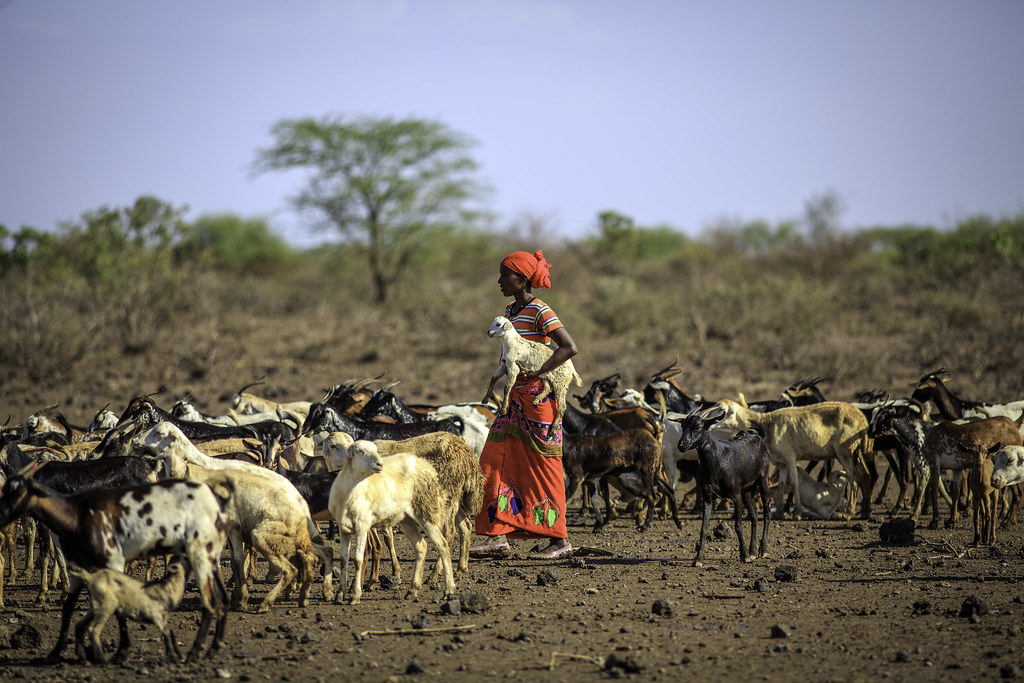
The RESTORE project, which follows in the footsteps of the EU-funded Health of Ethiopian Animals and Rural Development (HEARD) project, seeks to revitalize and strengthen the livestock service delivery system and improve the resilience of livestock grazing and feed resources. Focused on regions heavily impacted by drought and conflict such as Afar, South Ethiopia, and Tigray, with parallel projects in Amhara, Oromia and Somali regions, the project sets out to improve food security, enhance nutrition, and increase livelihood resilience through a holistic approach that prioritizes both economic recovery and environmental sustainability.
The RESTORE project is designed to address both the immediate and long-term challenges facing Ethiopia’s livestock sector. The project is underpinned by a clear set of objectives aimed at enhancing livestock service delivery, improving animal health, and bolstering resilience against future crises. Specifically, RESTORE will focus on:
- Rebuilding and improving livestock service delivery systems: The project will restore essential infrastructure for veterinary services, improve disease surveillance systems, and enhance laboratory diagnostics. This will ensure a more rapid response to emergencies affecting livestock and enable better decision-making.
- Enhancing veterinary services: By introducing innovative disease control methods, risk mapping, and transboundary animal disease management, RESTORE will equip both public and private sectors with the tools and knowledge needed to safeguard the health of livestock.
- Strengthening health and food safety standards: The project aims to improve market access for livestock products by working with Ethiopian government agencies to strengthen surveillance systems and ensure compliance with animal health and food safety standards. This will enhance the quality of products for both local and international markets.
- Improving fodder production: Given the importance of livestock feed in ensuring animal health and productivity, RESTORE will focus on enhancing the availability and quality of livestock feeds. The project will also support sustainable feed production systems by involving both community and private sector actors.
- Improving hide and skin quality: In partnership with regional stakeholders, the project will pilot solutions to enhance the quality of hides and skins, valuable by-products of livestock, thereby increasing their market value and improving livelihoods for rural communities.
The launch of RESTORE has received strong backing from the European Union, a longstanding partner in Ethiopia’s livestock sector. Beatrice Neri, team leader for Sustainable Agriculture at the EU, highlighted the EU’s commitment to promoting sustainable livestock practices in Ethiopia.
‘Over the past decade, the EU has invested nearly EUR 90 million (approximately ETB 12 billion ETB) into various livestock programs in the country. These programs have focused on strengthening veterinary services, improving livestock production, enhancing export quality standards, and supporting the inclusion of women and youth in the livestock sector.'
Neri emphasized that the EU’s approach "aims to balance the economic viability of livestock farming with social and environmental responsibilities.’’
This aligns with the broader goals of the RESTORE project, which seeks to enhance both the productivity and sustainability of the livestock sector.
ILRI, as the project leader, plays a pivotal role in driving this initiative forward. According to Namukolo Covic, ILRI director general's representative to Ethiopia, livestock is a cornerstone of rural Ethiopia’s economy, with nearly three-quarters of Ethiopian households dependent on livestock for their livelihoods. She noted, however, that animal disease has often limited the potential benefits that could be derived from livestock farming. The RESTORE project, therefore, aims to address these challenges through a comprehensive strategy that includes disease control, infrastructure restoration, and market improvement.
The success of RESTORE hinges on collaboration among various stakeholders. In addition to ILRI and the EU, key implementing partners include the Ethiopian Veterinary Association (EVA), regional Pastoral and Livestock Bureaus for Afar, Southern Ethiopia and Tigray, working in parallel with Amhara, Oromia and Somali regional Bureaus. These partners will work closely with local communities to restore and strengthen livestock services in conflict and drought-affected regions, ensuring that the most vulnerable populations can regain resilience and improve their livelihoods.
‘The RESTORE project’s holistic approach is a key feature that sets it apart from previous interventions. By targeting multiple aspects of the livestock sector simultaneously veterinary services, fodder production, disease management, and quality improvement for by-products the project will create a robust and sustainable system for livestock care and production. This approach is designed not only to address immediate concerns but also to ensure long-term benefits that improve the overall health and productivity of livestock populations across the affected regions,’ said ILRI’s Theo Knight-Jones, principal scientist and team leader for Herd Health.
By implementing innovative production methods and improving animal health, RESTORE will also help lower the intensity of greenhouse gas emissions associated with livestock farming, contributing to Ethiopia's broader climate resilience efforts. This is especially important in the context of ongoing climate change, which exacerbates the vulnerability of rural communities to extreme weather events such as droughts and floods.
Through the collaborative efforts of ILRI, the EU, and Ethiopian stakeholders, RESTORE promises to help transform Ethiopia's livestock sector into a more resilient and sustainable source of livelihood for rural populations. With an unwavering commitment to improving animal health, food security, and livelihoods, RESTORE provides better future for communities in Ethiopia who rely on livestock as their primary means of survival.






